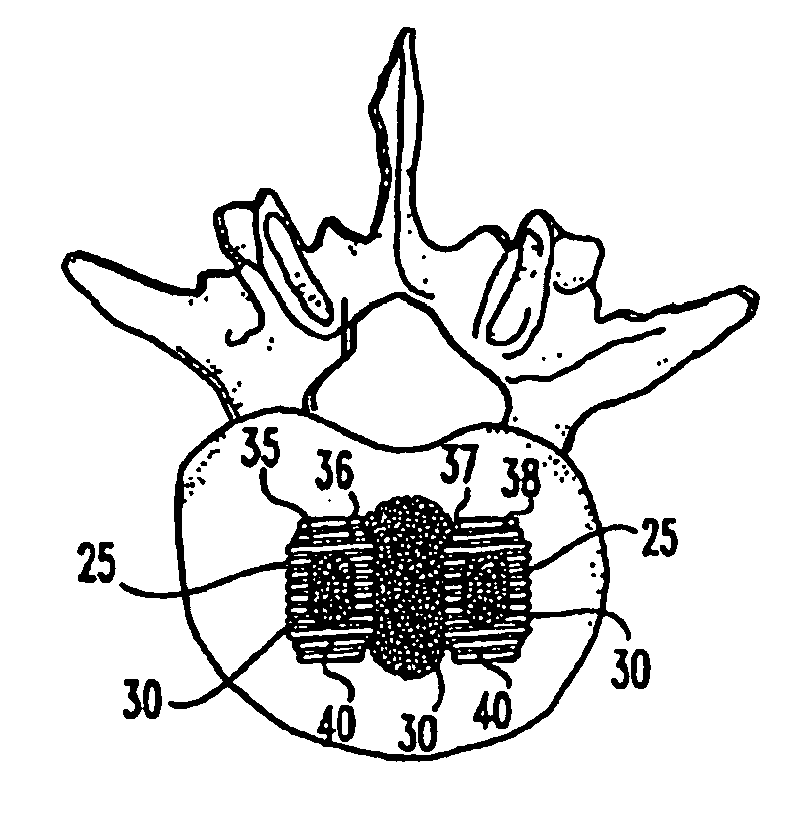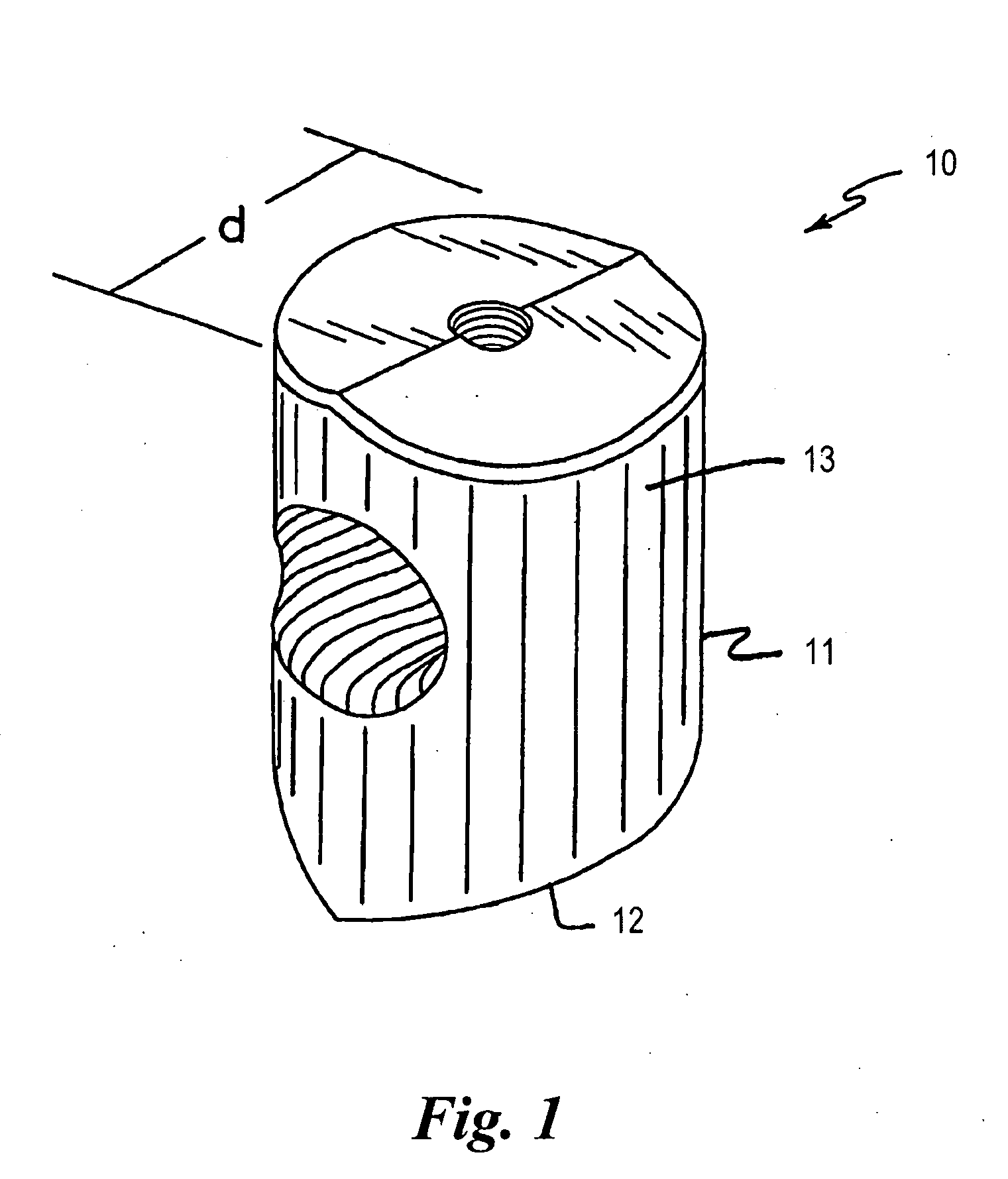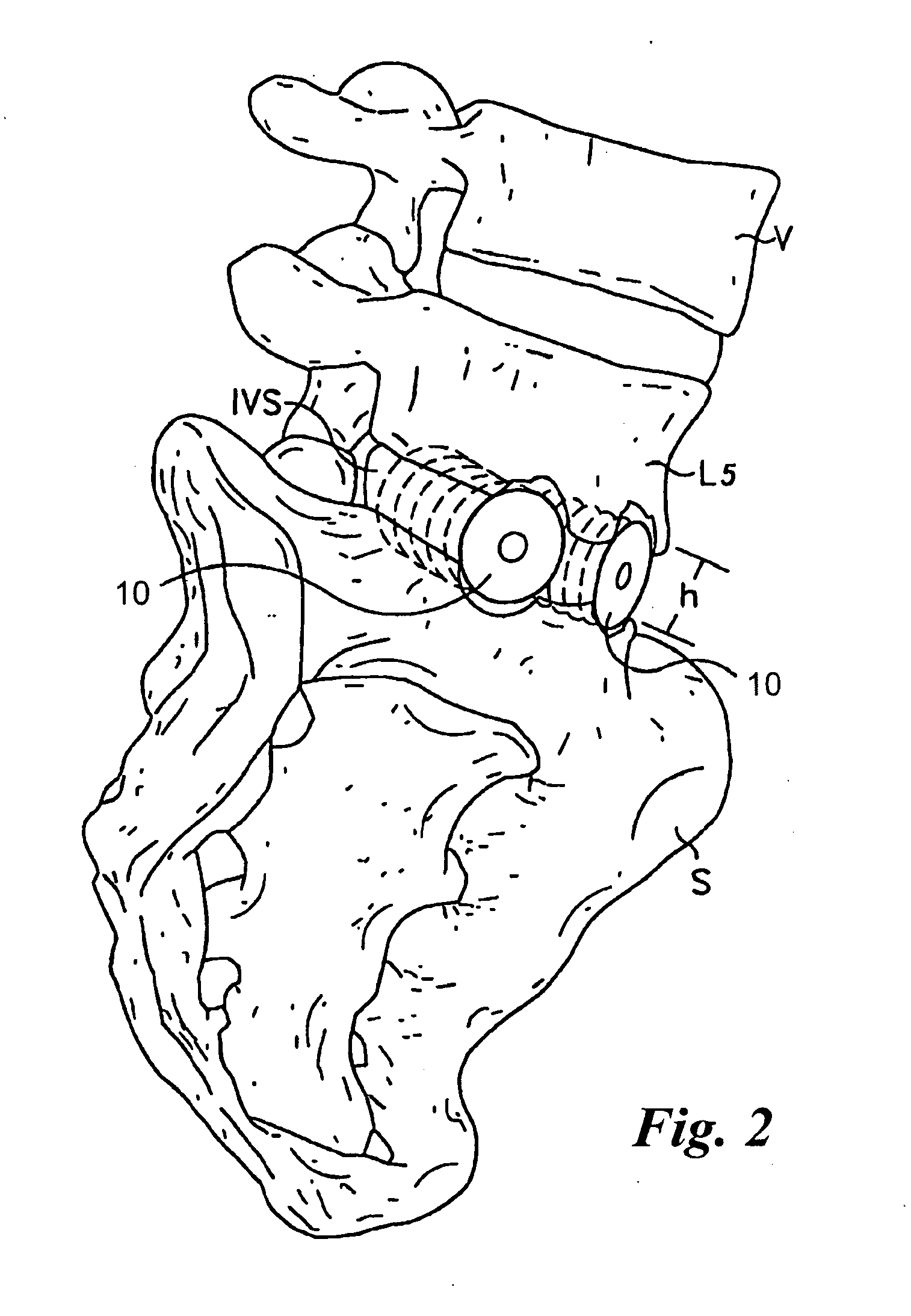Bone grafts
a technology of arthrodesis and bone grafts, applied in the field of spacers, compositions and methods for arthrodesis, can solve the problems of affecting the function of the bone graft, so as to avoid stress shielding, encourage bone ingrowth, and encourage bone ingrowth
- Summary
- Abstract
- Description
- Claims
- Application Information
AI Technical Summary
Benefits of technology
Problems solved by technology
Method used
Image
Examples
example 1
Diaphysial Cortical Bone Dowel
[0110]A consenting donor (i.e., donor card or other form of acceptance to serve as a donor) was screened for a wide variety of communicable diseases and pathogens, including human immunodeficiency virus, cytomegalovirus, hepatitis B, hepatitis C and several other pathogens. These tests may be conducted by any of a number of means conventional in the art, including but not limited to ELISA assays, PCR assays, or hemagglutination. Such testing follows the requirements of: (i) American Association of Tissue Banks; Technical Manual for Tissue Banking, Technical Manual—Musculoskeletal Tissues, pages M19-M20; (ii) The Food and Drug Administration, Interim Rule, Federal Register / Vol. 50, No. 238 / Tuesday, Dec. 14, 1993 / Rules and Regulations / 65517, D. Infectious Disease Testing and Donor Screening; (iii) MMWR / Vol. 43 / No. RR-8, Guidelines for Preventing Transmission of Human Immunodeficiency Virus Through Transplantation of Human Tissue and Organs, pages 4-7; (iv...
example 2
Threaded Dowels
[0115]A diaphysial cortical bone dowel is prepared as described above. The plug is then machined, preferably in a class 10 clean room, to the dimensions desired. The machining is preferably conducted on a lathe such as a jeweler's lathe or machining tools may be specifically designed and adapted for this purpose. A hole is then drilled through the anterior wall of the dowel. The hole is then tapped to receive a threaded insertion tool.
example 3
Bone dowel soaked with rhBMP-2
[0116]A threaded dowel is obtained through the methods of Examples 1 and 2.
[0117]A vial containing 4.0 mg of lyphilized rhBMP-2 (Genetics Institute) is constituted with 1 mL, sterile water (Abbott Laboratories) for injection to obtain a 4.0 mg / mL solution as follows:
[0118]1. Using a 3-cc syringe and 22G needle, slowly inject 1.0 mL sterile water for injection into the vial containing lyphilized rhBMP-2.
[0119]2. Gently swirl the vial until a clear solution is obtained. Do not shake.
[0120]The dilution scheme below is followed to obtain the appropriate rhBMP-2 concentration. This dilution provides sufficient volume for two dowels. The dilutions are performed as follows:
[0121]1. Using a 5-cc syringe, transfer 4.0 mL of MFR 906 buffer (Genetics Institute) into a sterile vial.
[0122]2. Using a 1-cc syringe, transfer 0.70 mL reconstituted rhBMP-2 into the vial containing the buffer.
[0123]3. Gently swirl to mix.
Dilution Scheme
[0124]
INITIAL rhBMP-2rhBMP-2MFR-842F...
PUM
 Login to View More
Login to View More Abstract
Description
Claims
Application Information
 Login to View More
Login to View More - R&D
- Intellectual Property
- Life Sciences
- Materials
- Tech Scout
- Unparalleled Data Quality
- Higher Quality Content
- 60% Fewer Hallucinations
Browse by: Latest US Patents, China's latest patents, Technical Efficacy Thesaurus, Application Domain, Technology Topic, Popular Technical Reports.
© 2025 PatSnap. All rights reserved.Legal|Privacy policy|Modern Slavery Act Transparency Statement|Sitemap|About US| Contact US: help@patsnap.com



